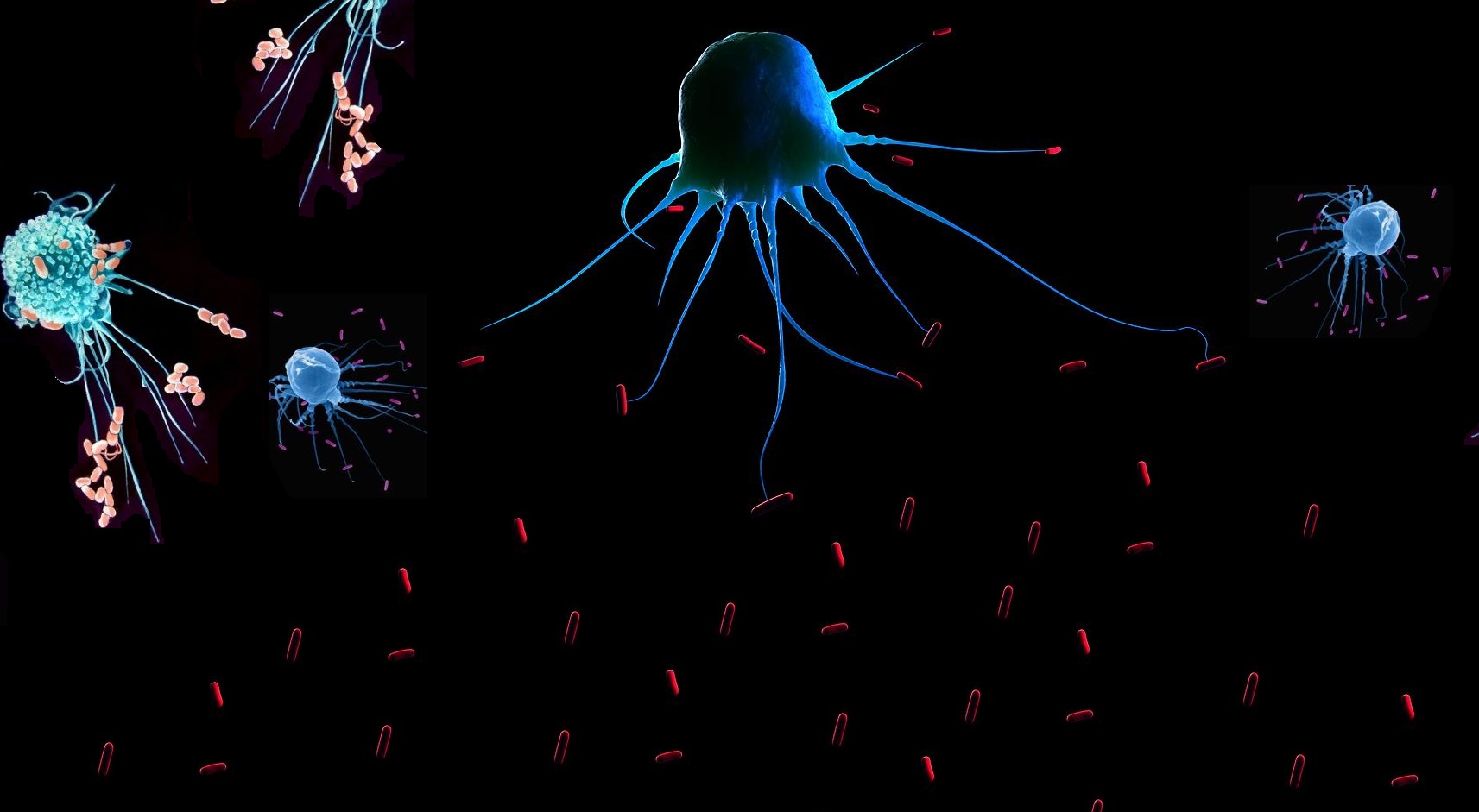Immunity is difficult to study because it is very complicated. In your year of biology, it is one of the chapters with the most complicated rules and facts, right, so maybe you have a tendency to downplay it in importance and focus on memorizing facts from other chapters. Well, besides the fact that immunity is super important, not only because so much work is and will be done in the area in this era, but also because it factors into daily conversation as we discuss health, healthy bodies, vaccines, disease epidemics around the world, mosquito-born diseases, and other things.
Well, although complicated, immunity can be easy to study because it is like war. There are cells in your body that have jobs fighting off any infection that gets in. Your skin is your body’s main barrier (in terms of infection), and when that skin is broken, bacteria that has been waiting nearby can invade. Then what happens?The bacteria starts building up a force in a little area before making a real move into your body. So at this stage your body responds in a particular way: Your macrophages, which can each handle about 20 bacteria, attack them there. They might not even get any further, but if they do, your body has cells that handle that too. Has this little paragraph wet your appetite for understanding immunity?
Here are some YouTube videos that will illustrate immunity. Post any questions below, and we’ll do an update some day.
This video mentions “the media” as putting undue “hype” on Ebola; so I’ll mention that many world leaders refused to treat Ebola seriously for months, until, despite their most stringent security measures, the very first returnees caused Ebola infections on our soils, something they said was almost impossible (impossible enough to not put in place travel restrictions). Some news media argued for the seriousness of Ebola and its potential to spread from the beginning (which is what leaders were ignoring). Soon after leaders saw infections on their own soil, they enacted travel restrictions, which was mostly what those media were arguing for.
 " >
" >


